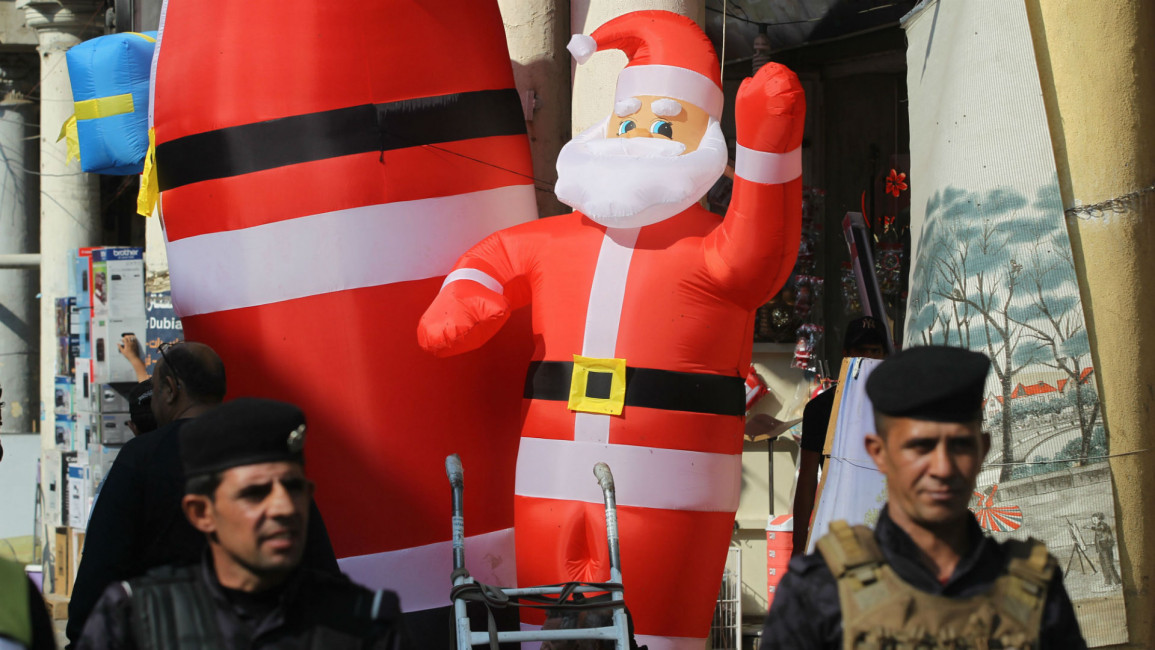Iraq's largest Christmas tree raised to celebrate IS defeat
Iraq has erected its largest Christmas tree in the capital's al-Zaura theme park to celebrate Christmas and the one year anniversary of the country defeating the Islamic State (IS) group.
Park official Qais Adnan told the Associated Press that the tree is 26 metres tall (85.3 feet), with a diameter of 10 metres (32.8 feet).
The Christmas tree, originally a Christian tradition, was partly installed to celebrate Iraq's religious diversity, as the country's Christian community has steadily dwindled since the 2003 US-led invasion.
The IS group also targeted Christians on several occasions, causing many to flee the country.
Louis Raphael Sako, Head of the Chaldean Catholic Church in Baghdad told AP that Christians in Iraq remain marginalised.
"There rights have been violated, many of their homes and properties were invaded and taken away from them. They have been sidelined for jobs as well," Sako said.
The exact number of Christians in Iraq is unclear, but they are thought to be several hundred thousand.
Baghdad resident Rasha al-Taie described the tree as representing "love, peace and solidarity" between Muslims and Christians.
"We, as Muslims, declare solidarity with them (Christians). God willing, all coming years are years of joy and peace for Iraq and all its diversity," she added.
At its height in 2014, the IS group held aroudn a third of territory in Syria and Iraq, including major cities like Mosul and Raqqa.
In the year since Iraq's government declared its own victory against the group, IS militants have mounted increasingly audacious attacks on roads and villages in the country, kidnapping and killing civilians and security officers and sewing fear of a brewing resurgence.
More than 1.8 million Iraqis remain displaced across the country, and a staggering 8 million require some form of humanitarian aid, according to the Norwegian Refugee Council. Those with suspected links to IS have been rejected by their communities, while thousands of children fathered by IS militants - including those born to enslaved Yazidi women - are still unrecognised by the state.
Nearly two-thirds of displaced people say they are unwilling or unable to return home in the next year, with more than half saying their homes were damaged or destroyed, said the aid group.



